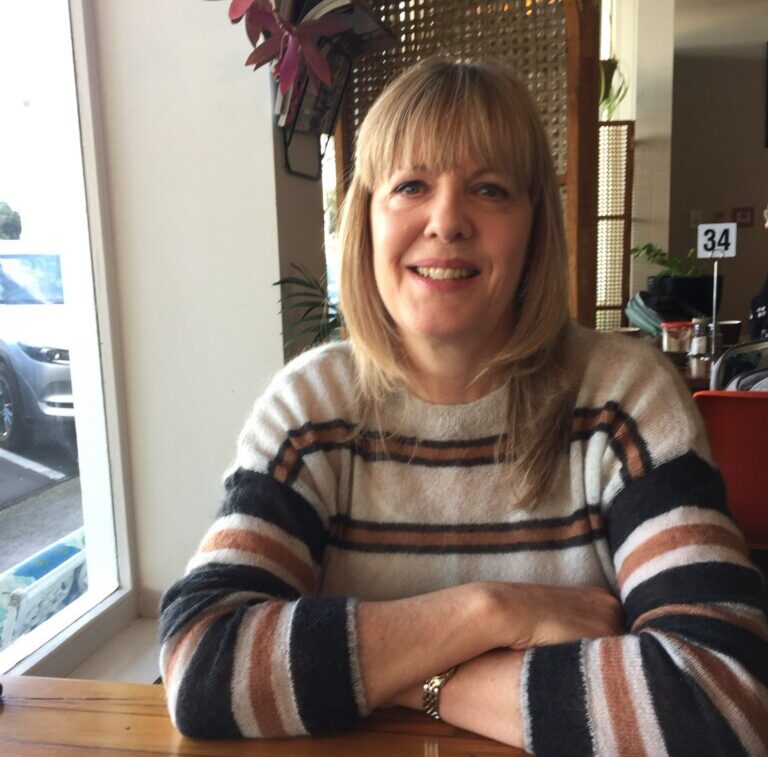
Clinical nurse specialist Lisa Caddis’s interest in what would become her master’s degree research project was sparked when she visited a heart failure patient in his home and discovered he had no power for two days each week – all because of the energy plan he was on.
‘We come across patients who are socially isolated, or missing appointments because they have no transport.’
“When I arrived, he apologised for how cold it was,” she says. His power company was unaware of his chronic conditions; and a quick phone call saw him changed to a plan that would accommodate his needs.
For one who only took up nursing in her 40s, Caddis has moved quickly, becoming a clinical nurse specialist and nurse prescriber in six years. Having funding assistance helped: Health workforce funding via the former Capital & Coast District Health Board plus a Perpetual Guardian Trust scholarship that helped pay the $2300-per-paper fees for four subjects at masters level.
It was a heart attack suffered by her father that made Caddis decide to become a nurse. She’d worked in the corporate world, then raised two daughters, but waiting with her dad in the emergency department, “something just went click in my head” and she realised she didn’t want to go back to the corporate world.
After completing her undergraduate degree at Massey University’s School of Nursing, Caddis joined the Wellington regional heart and lung unit and started covering for heart failure clinical nurse specialists when they took leave – all the while working to complete her masters at Victoria University. She also qualified as an NP, allowing her to prescribe medications as part of a specialty team.
Nurses ‘vital’ in connecting patients with other services
Caddis says that early home visiting is just one example of how nurses can play a vital role in connecting patients with external service providers (ESPs).
“We come across patients who are socially isolated, or missing appointments because they have no transport, for example, and nurses either have the services to connect them in their head or find out about services by accident. In the outpatient setting, it’s difficult treating patients’ health concerns, when their overall well-being is shaped by non-medical factors that influence health outcomes.”

‘I think a lot of nurses have this information in their heads — it just isn’t in a central place for easy access yet.’
Her masters research, using the plan-do-study-act (PDSA) change-making model, led to the development of a comprehensive ESP directory for Porirua, Kāpiti, Wellington and Hutt Valley. Using the Manatu Hauora/Ministry of Health’s health equity assessment tool, designed for people working in the health sector, baseline data suggested cardiology outpatient nurses’ level of confidence in connecting patients to ESPs was at 46 per cent.
The service directory includes exercise, food and nutrition, medications, healthy homes (including power and gas), mobility, social isolation and transport. Nurses were incentivised (with a prize of chocolates!) to review the directory. A further, anonymous, survey saw the nurses’ level of confidence in connecting patients to ESPs double to 100 per cent.
‘Work to do’ for nurses
Encouraged by her manager to enter her abstract to CSANZ, Caddis was surprised to be asked to present her research at the Cardiac Society’s conference in June.
“I think a lot of nurses have this information in their heads,” says Caddis, who would love to see a resource like this sit alongside the current health pathways guide. “It just isn’t in a central place for easy access yet”.
There’s more work to do to give nurses the confidence to have conversations about ESPs with their patients, says Caddis, who currently sees heart failure patients for Te Whatu Ora, Capital — Coast and Hutt Valley at three clinics in Wellington and Kenepuru hospitals each week as well as seeing people in their homes.
“I’m really passionate about nursing,” says the Eastbourne resident of 30 years. “I really love helping people.”
— Reproduced courtesy of the Eastbourne Herald with addition edits by Kaitiaki co-editors.



